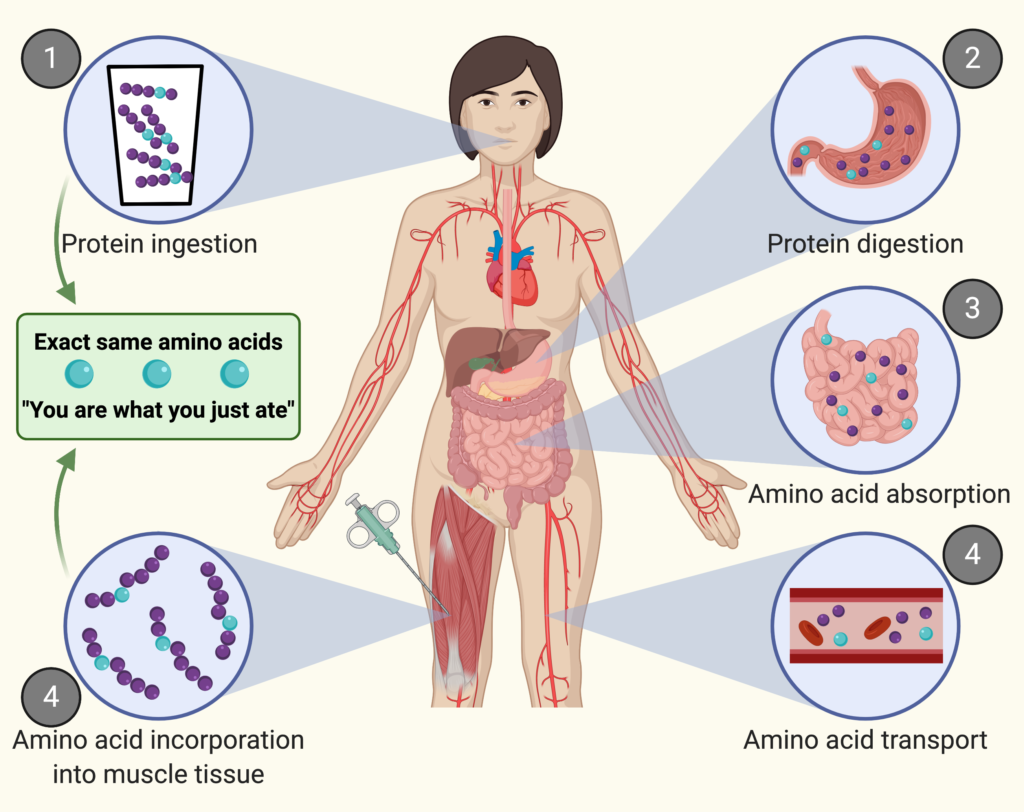Protein plays a critical role in the performance and recovery of endurance athletes, especially during prolonged training and racing periods. As endurance activities demand extended energy sustenance, the timing and quality of protein intake can significantly influence muscle repair, recovery, and overall performance. While many athletes traditionally lean towards animal protein sources, the rise of plant-based diets warrants exploration into the efficacy of plant proteins in this context.
After ingesting protein, the body breaks it down into amino acids, which are subsequently absorbed into the bloodstream and utilized in muscle protein synthesis. This synthesis is pivotal for muscle repair and growth, particularly after the stress of endurance activities. However, the question of protein quality arises: do plant proteins provide the same advantages as their animal counterparts? Several studies indicate that plant proteins often have lower essential amino acid (EAA) content, alongside potential deficiencies in specific amino acids crucial for muscle development. For instance, amino acids such as lysine and methionine, vital for effective protein synthesis, tend to be less abundant in many plant-based sources. This can pose challenges, especially for endurance athletes who may require higher intake levels to meet their nutritional needs.
Beyond the amino acid profile, the digestibility of protein sources also influences performance outcomes. Plant proteins typically have lower digestibility due to the presence of anti-nutrients, which can interfere with absorption. For endurance athletes training in demanding conditions, maximizing digestibility becomes paramount. Inadequate intake or poor absorption of essential amino acids can hinder recovery and, subsequently, performance.
To mitigate the potential drawbacks of a plant-based diet, endurance athletes can adopt several strategies. Increasing overall protein intake is a straightforward approach to compensate for lower-quality sources, although it can be challenging given the caloric density of many plant foods. Athletes often find it simpler to meet their protein needs with animal proteins, which offer higher density per serving. To address this, incorporating protein supplements can provide a practical solution. These supplements tend to be highly digestible and can efficiently contribute to amino acid intake without the excess calories that whole foods may introduce.
Additionally, blending different plant proteins can enhance the overall amino acid profile. Combining high-protein sources like lentils with others rich in essential amino acids allows athletes to optimize their protein intake while maintaining a plant-based focus. Fortification of plant-based foods, such as protein-enhanced meat alternatives, helps address specific EAA deficiencies common in isolated plant protein sources. Nevertheless, reliance solely on fortifications may not always assure proper intake unless followed by consistent monitoring of protein quality and availability.
While some studies show no significant differences in muscle mass gains between those consuming animal versus plant proteins, this often hinges on the quantity and timing of intake relative to training demands. Endurance athletes who utilize a high-protein supplement shortly after training may achieve recovery benefits regardless of the protein source. This highlights the importance of not just the type of protein but the strategic timing of consumption, especially post-exercise when muscle repair is crucial.
Hydration and its relation to protein intake cannot be overlooked. Prolonged endurance activity depletes not only energy stores but also leads to an increased demand for hydration. This shift demands careful attention to micronutrient intake and gut tolerance. As athletes experiment with different fuels and supplements, understanding their individual digestive responses helps inform better strategies for maintaining energy over extended durations.
Moreover, metabolic efficiency plays a key role in an athlete’s performance. For those adhering to plant-based diets, ensuring a balance of macronutrients—beyond just protein—becomes increasingly essential. Calculating one’s protein needs should be integrated with an understanding of overall calorie intake, particularly as endurance training creates heightened energy demands. The interplay between carbohydrates and fats and how they complement protein intake can support sustained energy in endurance contexts.
In conclusion, while the advent of plant-based diets presents challenges regarding protein quality and muscle recovery, endurance athletes can leverage knowledge of protein sources and timing to optimize their performance. Coinciding with strategic supplementation, blending protein sources, and adjusting hydration strategies plays a vital role in navigating the intricacies of endurance sports while adhering to a plant-based diet. As athletes refine their fueling strategies, the realistic takeaway is to prioritize high-quality plant protein sources and consider supplementation, especially after long or intense training sessions, to promote optimal recovery and performance.
